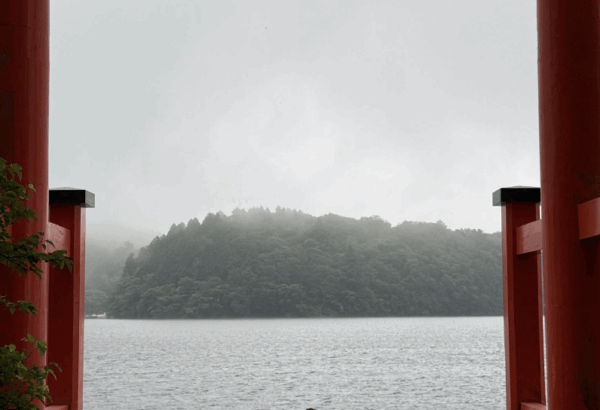Principle 2 – A Brave Space
Safe space vs. brave space
All of us sometimes can use such a space, a refuge, where we feel insulated from pressures, insults and impositions. It’s important to many people to know that such judgment-free zones are available to them.
Without the ability to carve out such spaces, much therapy and many identity support groups would be impossible to sustain.
Beyond that, all of us deserve to be free, all the time, from some of the things the OED cites: discrimination, harassment, and violent physical harm.
But can we perhaps agree on this: Some of the other items listed in these definitions of safe space are qualitatively different, and of more limited application?
Can any of us have any reasonable expectation always to be shielded from all criticism, conflict and “threatening ideas” – in other words, anything we might ever find upsetting?
No, that’s not the way the world works.
What’s more, would it even be good for us to be rigorously shielded from any views or opinions other than those we already hold?
No, it would not. It would be a prescription for intellectual stagnation and emotional fragility.
Going a step further, the idea of protecting students from exposure to any statements or ideas that might unsettle their prior assumptions is antithetical to the goals of a university.
Higher education is based upon the notion that it’s good to be challenged, that fair criticism promotes intellectual growth, that expanding your understanding in a way that causes you to revise your priors should be delightful and invigorating, not hurtful or destabilizing.
Once students leave campus, neither the world of work nor the civic sphere of policy nor, most definitely, the arena of American politics can be described as a venue that guarantees anyone a “safe space” as the dictionaries define it.
To the contrary, these are spheres where we all should expect, and accept, that we will encounter people who think, say and do things that will challenge us, exasperate us and upset us.
“Safe space” is the exception, not the everyday; it is the refuge, not the daily arena.
To expect safe space to define the bulk of your days is neither reasonable nor healthy.
Consider: Just because a statement or idea is upsetting to you does not necessarily mean it is out of bounds and should be squelched.
Some of the most essential statements in American history were very upsetting to very many.
The lunch counter and bus protests by Blacks in the South during the civil rights era were deeply upsetting to some whites. Did those whites have a right to declare “a safe space” where such pesky protests were not allowed? Similarly, suffragette protests and anti-war marches were viewed as illegitimate and offensive by many in the mainstream of their day.
Today, many Americans find it upsetting and obnoxious to be reminded of the plain fact that the 2020 presidential election was not stolen. Should they be left to their own “safe space” where they can marinate in lies and propaganda?
In the same vein, many men find it upsetting, confounding and insulting to hear that some workplace behaviors in which they have indulged for decades are sexist and discriminatory. Should they get to retreat to a “safe space” into which such critiques of questionable behavior cannot penetrate?
To be sure, sometimes words that upset us are nasty or wrong-headed.
But, in a diverse, free society, no one person’s emotions can serve as the sole reliable measure of what can be said aloud or in print.
Perhaps you’re thinking: But all those people you mentioned above were on the wrong side of history; I’m in the right.
Yes, the racists, sexists and harassers were in the wrong. But … are you always in the right? Are you always thinking with utter clarity, full historical context, and perfect control of your emotions? If so, you’re a unicorn.
None of us, by ourselves, is a perfect barometer of what is just, what is within bounds, what cannot be allowed.
We all – all – sometimes behave in ways that violate our stated values. We are all – all – subject to human failings such as confirmation bias or projection. None of us knows precisely what we don’t know. We are all prone to react with emotion, more than logic or fairness, when we hear a viewpoint that questions our assumptions or critiques our views.
So, should any of us have a right to declare ourselves permanently entitled to a “safe space” where we’re exempt from hearing any words that might in any way challenge or upset us?
Brave space for a diverse, dynamic, and democratic society
Not in a diverse, dynamic, democratic society such as ours is meant to be.
To embrace a diverse society means to uphold diversity of viewpoint, not just of gender, orientation, or race.
To embrace democracy means to grasp that many different types of people, with many different views, have an absolute right to speak and be heard in the public square – even though some may exercise that right in ways we dislike.
The path to democratic progress always, always passes through conflict and tension.
The indispensable democratic skill is being able to work through such conflict and tension to find a better answer on the far side, not to squelch and silence and declare ourselves exempt from challenge, learning or change.
Qualities of a brave space
That’s why, in the dialogue work we do, we are quite clear and emphatic with participants that, if they choose to take part in the coming discussion, they should accept that they are entering not a therapeutic safe space but a civic brave space.
In a brave space, you are called upon to learn and hone the skills of democratic citizenship.
In a brave space, you must understand you will likely hear things that surprise or even upset you.
In a brave space, you will likely hear from people whom you don’t normally hear from – and will be challenged to listen to them in new, productive ways.
In a brave space, you will be asked to renounce any expectation that your assumptions and statements are immune from critique, or that your critiques of others will automatically be privileged.
In a brave space, you will have a chance to learn how to convert the challenging and upsetting into insight and growth, rather than defensiveness, insult or flight.
In a brave space, you will be asked to put the success of the dialogue ahead of any desire to score points or to be proven right. (As will everyone else.)
In a brave space, your task will be to leave the conversation with a better understanding of the other people in the room, and to leave them with a better understanding of you – in a way that makes everyone want to continue the dialogue.
Yes, it is much harder and scarier to operate in a brave space than a safe space.
No one can do it all the time. That’s why safe spaces, places of retreat, refuge and support, will always be needed.
But learning to operate in a brave space will make you stronger and more supple intellectually, more resilient and perceptive emotionally, more effective and respected professionally, and more engaged and helpful as a citizen of this troubled nation.
This post is from a series of 6 principles and 9 ground rules for constructive dialogue developed and written by Chris Satullo and Harris Sokoloff for the SNF Paideia course: “Civil Dialogue Seminar: Civic Engagement in a Divided Nation”.
9 Ground Rules for Participating in Constructive Dialogue:
- Ground Rule 1 and 9: Listen, it’s as important as talking.
- Ground Rule 2: Everyone participates; no one dominates
- Ground Rule 3 and 4: Disagreement is fine. It’s fruitful. Don’t try to win it or paper it over. Explore it.
- Ground Rule 5: Build on what others say
- Ground Rule 6: Consider the possibility that, on any given issue, your information may be incomplete
- Ground Rule 7: Notice what voices are not in the room. Consider fairly what they might say if they were
- Ground Rule 8: Be honest, but never mean
6 Principles for Designing Constructive Dialogue:
- Principle 1: Design talk to lead to action
- Principle 2: A brave space
- Principle 3: If you want to hear a different conversation, you have to hold a different conversation
- Principle 4: Redefine the win
- Principle 5: Listen in the way you would like to be heard
- Principle 6: Begin with story not position




